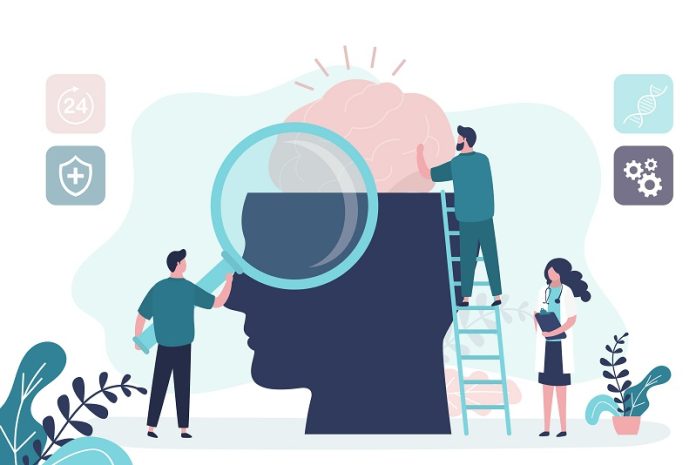
Recent research shows that what we eat not only affects our physical health but also plays a big role in keeping our brain healthy.
A diet high in sugars and processed foods can weaken brain function and harm your mental well-being.
To keep your brain working at its best, you need to eat healthy foods like fruits, vegetables, whole grains, fish, and lean meats.
The Brain and Gut Connection
Your brain and gut are closely linked through something called the gut-brain axis.
This connection allows your brain and stomach to communicate directly through the vagus nerve.
This is why you sometimes feel “butterflies in your stomach” when you’re nervous or excited—your brain and gut are talking to each other!
The gut is home to trillions of tiny organisms called the microbiome, and they play a big role in your mood and mental health.
When you eat a diet rich in fiber from whole foods, these organisms thrive and support brain health.
By eating the right foods, you can improve your mental alertness, mood, and even memory.
Brain-Boosting Foods
Here are some key foods you should include in your diet to boost your brain health:
- Berries
Berries, especially blueberries, are packed with flavanols, which help improve brain function. Flavanols boost blood flow to the brain and protect brain cells from stress and inflammation. Regularly eating berries has been linked to a lower risk of cognitive problems, like Alzheimer’s and dementia. - Fish
Fish is a great source of omega-3 fatty acids, which are important for brain health. Omega-3s reduce inflammation and improve communication between brain cells. They also help repair brain tissue, which keeps your thinking sharp. You can find omega-3s in fish like salmon, sardines, mackerel, tuna, and cod. - Leafy Greens
Leafy greens like spinach, kale, and collards are full of vitamins, fiber, and folate, making them a must for brain health. Studies show that people who eat leafy greens regularly may experience slower cognitive decline as they age and have better memory. Try adding these greens to your salads, soups, or smoothies for extra nutrition. - Nuts
Nuts like walnuts, pistachios, and almonds are excellent for brain health. Almonds are known to help improve memory, while pistachios help reduce inflammation and improve cognition. Walnuts are especially rich in DHA, a fatty acid that can boost learning ability and protect your brain from aging.
Gut Health for Brain Health
Taking care of your gut is just as important for your brain. A healthy gut helps lower the risk of mental health issues and supports memory and learning.
- Probiotic Foods
Probiotic foods help create a healthy microbiome in your gut, which produces chemicals like serotonin and dopamine—key to regulating your mood. Probiotic foods include yogurt, kimchi, sauerkraut, buttermilk, and some cheeses. Studies show that eating probiotic-rich foods can lower the risk of anxiety and depression while improving memory and learning. - Prebiotic Foods
Prebiotics feed the healthy bacteria in your gut and support brain function. Foods like garlic, onions, and bananas are rich in prebiotics, which help your body produce compounds that reduce inflammation in the brain. To maintain a healthy gut and brain, aim for 25–30 grams of fiber a day from fruits, vegetables, whole grains, and legumes like beans and chickpeas.
Your diet has a powerful effect on your brain health.
By including brain-boosting foods like berries, fish, leafy greens, and nuts, and supporting your gut with probiotic and prebiotic foods, you can help keep your brain sharp, improve your mood, and protect against mental decline as you age.
Eating well isn’t just good for your body—it’s great for your brain too!
If you care about brain health, please read studies about dietary strategies to ward off dementia , and how omega-3 fatty acids fuel your mind.
For more health information, please see recent studies about Choline deficiency linked to Alzheimer’s disease, and what to eat (and avoid) for dementia prevention.





